
Once you and your dog have been accepted on the Infinity Dogs Training Programme, you will be invited to an Induction Day at our training facility to introduce you to your trainers and fellow Assistance Dog handlers.
The training programme has six stages, starting with the Foundation Stage which covers core competencies to prepare you for the journey ahead. Each stage builds skills and offers diverse experiences such as flight simulators, theme parks, farms, and healthcare environments. Assessments will continue throughout your training until you're ready to navigate the world as a team.
If you are interested in joining our training programme, please get in touch:
Induction Day
The induction day held at the beginning of your training is mandatory. It is held at an accessible venue in Warwickshire, and will usually take around 6 hours.
It is a safe, inclusive, supportive and joyful environment. Your fellow dog handlers will have various disabilities and/or health conditions and many are neurodivergent (as is Ruby) and we want you to feel safe in a comfortable, non-threatening setting. The barn is a wonderful accessible venue but does get cold, so do wrap up warm and bring food and drinks to sustain you. Toilet facilities, microwave and kettle are available. Rather than us storing emergency contact details, it would be useful if you could keep the name and number on your dog (eg pocket of vest).
We have complementary Infinity Dogs red hoodies and T shirts at the barn if anyone would like one.
You will meet the others from your ‘intake’ and hopefully will develop lasting friendships. All of your questions will be answered on this day, and you will be given details on how your programme will look over the coming months.

1 Foundation Stage
At Infinity Dogs CIC, we welcome dogs of all ages to begin their transformative journey. The Foundation stage is crucial, setting the groundwork for all future training and ensuring that both the dog and handler are prepared for the adventures ahead
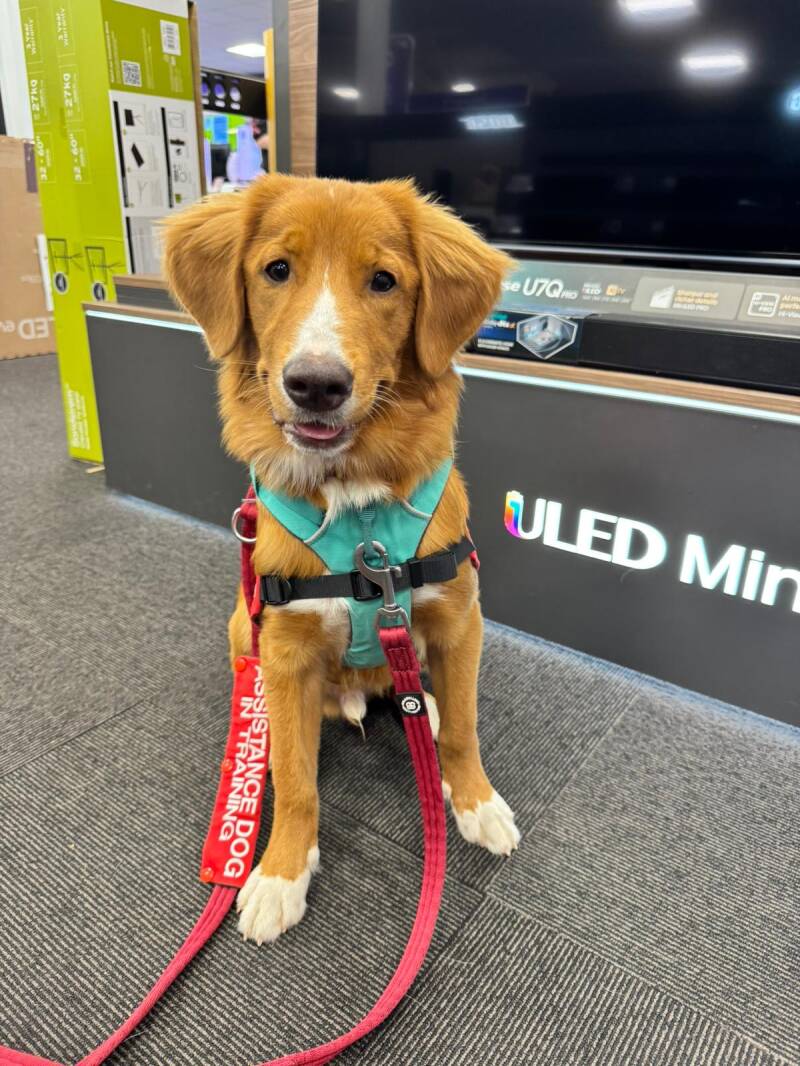
2 Candidate Stage
Once your dog reaches six months of age, they become eligible for the Candidate stage. Achieving this milestone earns them a lead sleeve, symbolising their progress and readiness to take on more advanced training.
During the Candidate Stage, you can expect access to monthly workshops similar to those in the Foundation Stage. However, these workshops are usually slightly longer and include up to four other partnerships. You will delve deeper into topics such as body language, learning theory, body awareness games, and working under slightly higher levels of distraction.


We started training Ronnie at 16 weeks, before I was diagnosed. He has brought so much to the family. He helps me and Fred daily. He has had a significant impact on our lives – I’m able to listen to him as he is able to give warning to both of our medical episodes, despite originally just training for my son. It’s hard, stay committed, don’t beat yourself up. Keep going!
Emma


I didn’t like or want to go anywhere and if I did I had to have someone with me as I had no confidence and was worried what would happen if I fell or passed out. Having my dog with me has given me the freedom to start going out again and living a little better quality of life.
As it’s still at the beginning of our training I don’t push him to do everything he will be doing in another 8 months time. Go for it and embrace the new chapter of your life!
Assistance Dog Handler
3 Basic Training
In the Basic Training phase, your dog earns the free loan of an Infinity Dogs In Training vest. This vest is to be returned upon qualification and serves as a visual cue to the public, indicating that your dog is in the process of becoming a fully-fledged Assistance Dog. It signifies commitment and dedication to the training journey.
Basic Training is divided into five parts: Public Access Training, Taskwork Training, Scenario-based Training, Workshops and Socials.
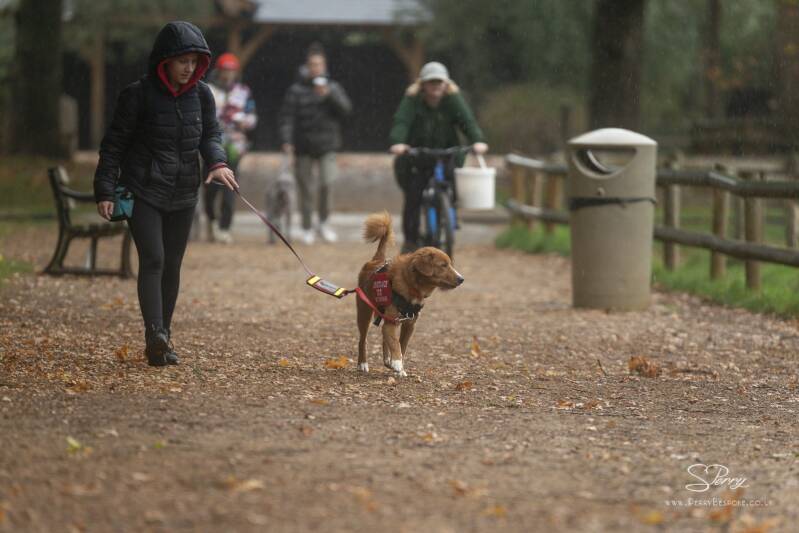
4 Advanced Training
Building upon the foundational skills, Advanced Training delves deeper into specialised tasks and hones the abilities your dog needs to support you effectively. This stage is about refinement and ensuring that both you and your dog are attuned to each other's needs in a variety of settings.
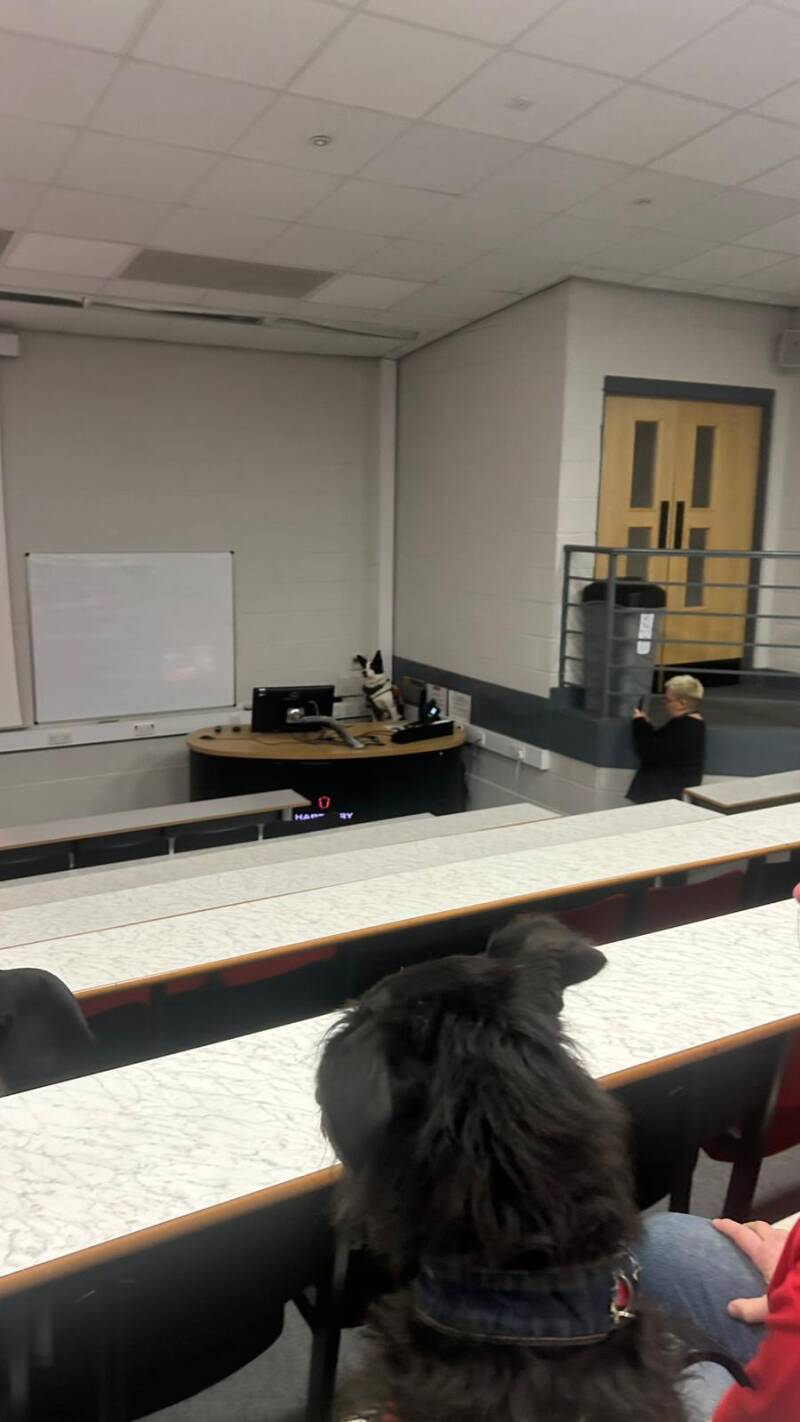

Before having Infinity Dogs CIC to bounce ideas off the AD world could be quite scary. I’m much more confident and being able to help others is a huge bonus. It is light in a rather dark world. Infinity Dogs is a safe space where you will be supported and heard. Go for it!!
Assistance Dog Handler

5 Basic Public Access Test
This is a pivotal assessment where your dog's proficiency in public settings is evaluated. The Basic Public Access Test ensures that your dog can maintain composure, follow commands, and perform necessary tasks amidst the distractions and challenges of everyday environments.
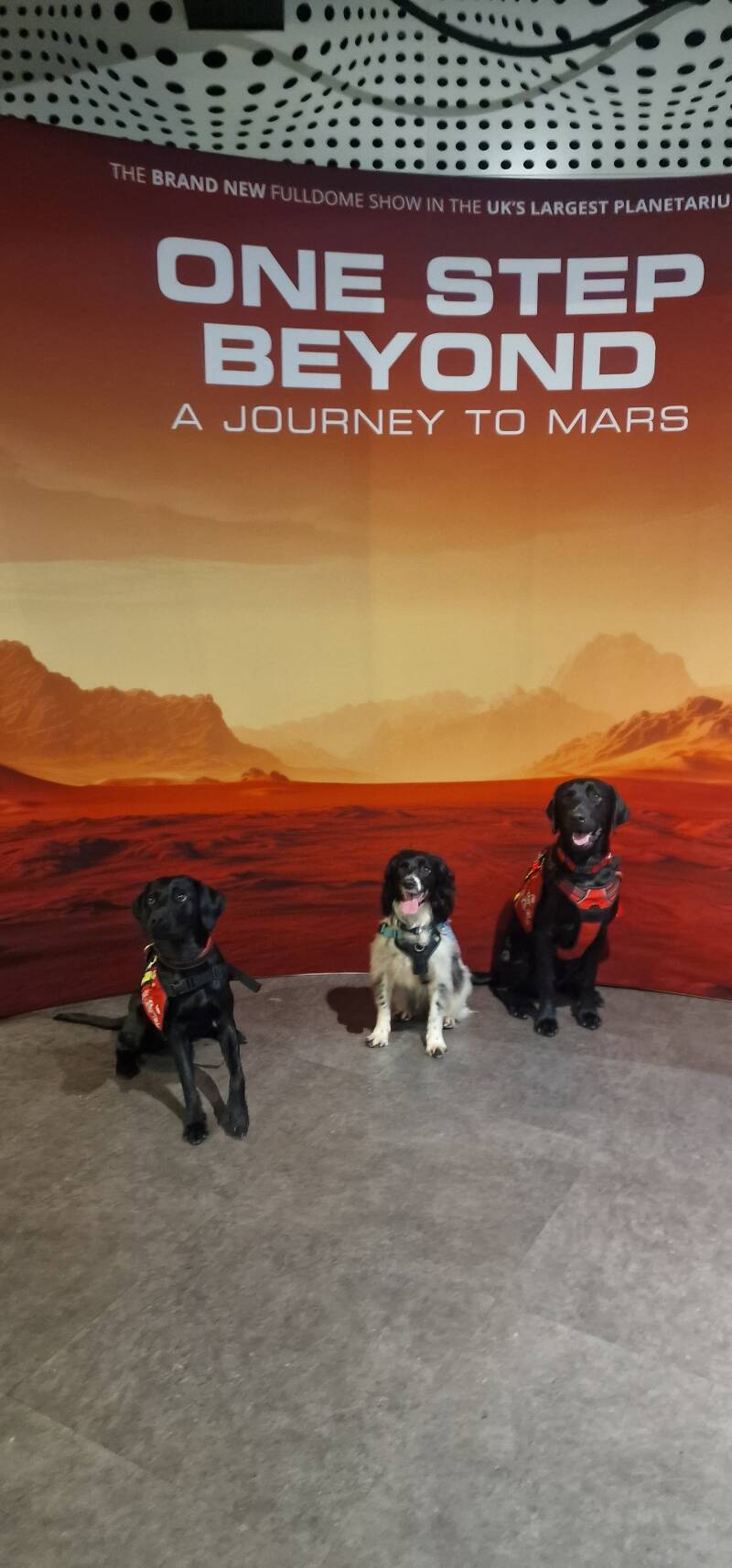
6 Advanced Public Access Test
The final hurdle is the Advanced Public Access Test. This rigorous evaluation puts all the training to the test, confirming that your dog can handle complex situations with confidence and poise. Passing this test signifies that you and your dog are fully prepared to navigate the world together as a team.
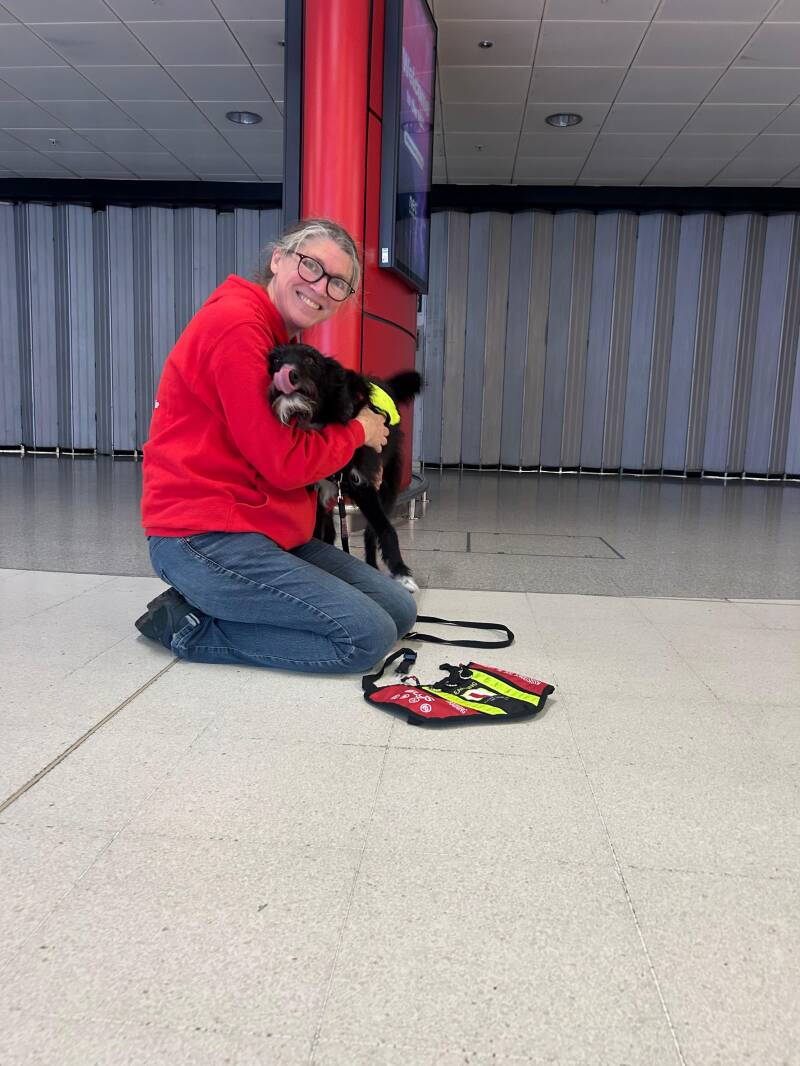

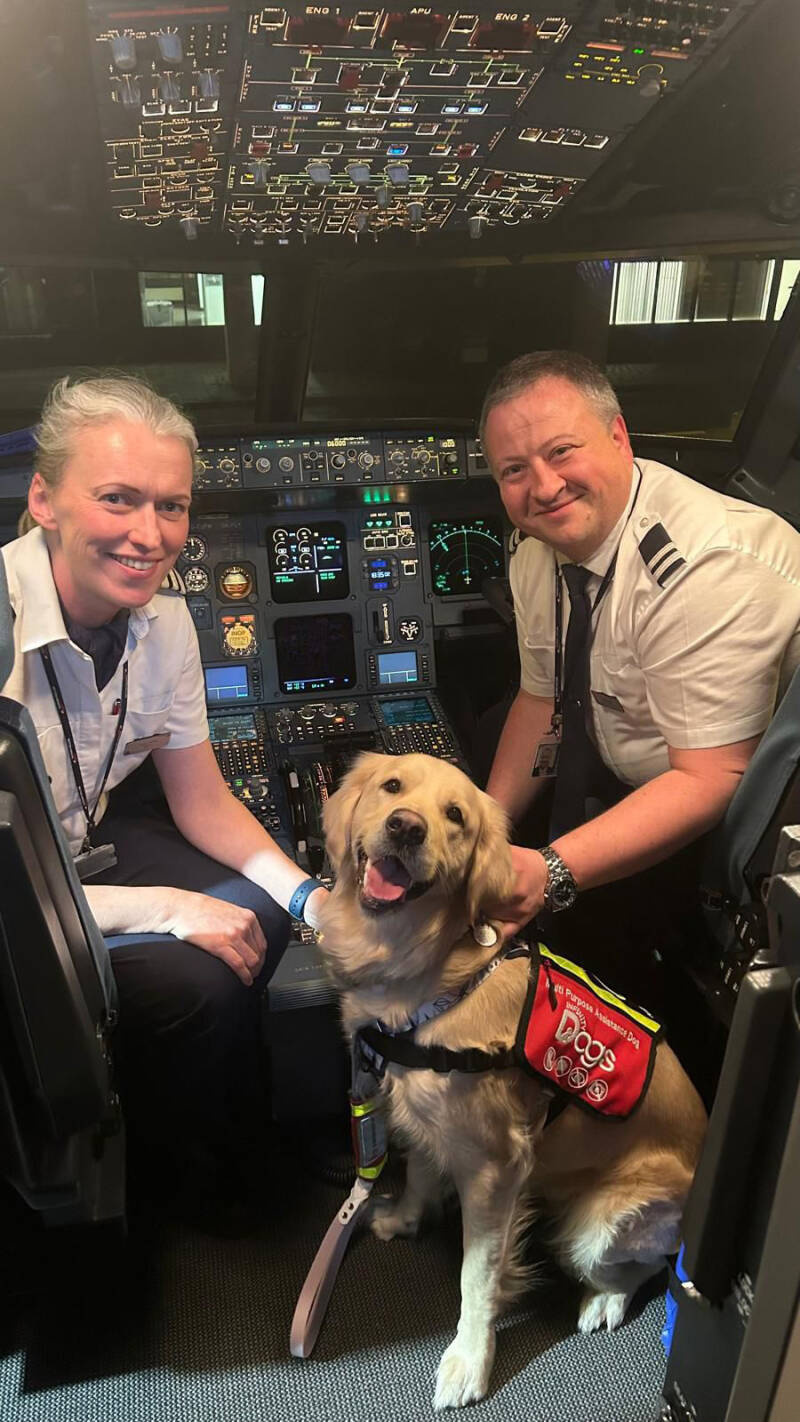
Koda meeting her crew on British Airways

If you would like to see a more detailed description of the skills required for each level, you may view our ID Dogs Competency booklet here.
Please note that this is only for your personal use, and may not be copied or distributed in any way without the permission of Ruby Welsford
What happens after you’ve qualified?
Annual reassessment
An annual reassessment gives both you, and us, the assurance that your Assistance Dog continues to meet the standards met when they graduated. Your monthly fee of £6 covers the cost of reassessment, and on-going support. You can as an alternative pay a one off fee of £60, which is cheaper. You will be given contact details of the various assessors that you can use.
The reassessment process includes several components. Firstly, you will retake our Public Access Test (PAT) annually. This test evaluates your dog and handler team’s ability to work happily in public across a range of scenarios. It ensures that you and your Assistance Dog are maintaining the necessary skills and behaviours to navigate various environments.
Additionally, we will conduct a review to ensure that there are no significant concerns regarding house manners, husbandry, and general welfare. This may include an annual vet check to ensure your dog’s health and well-being. If any concerns are identified, we will provide guidance and support, and if necessary, connect you with relevant support networks.
Ongoing support
Furthermore, qualified partnerships have access to a 30-minute fortnightly call with a trainer if needed. This allows you to seek guidance, ask questions, or discuss any concerns that may arise during your journey as an assistance dog team.
At Infinity Dogs CIC, we are committed to providing ongoing support and training to our qualified partnerships. We believe that continued learning and development are key to maintaining a strong and successful partnership. With our reassessment process, access to training hours, and regular communication with trainers, we aim to ensure that you and your assistance dog thrive in your roles.
We are excited to continue this journey with you and support you every step of the way. Together, we can make a difference and create a brighter future for Assistance Dog partnerships.
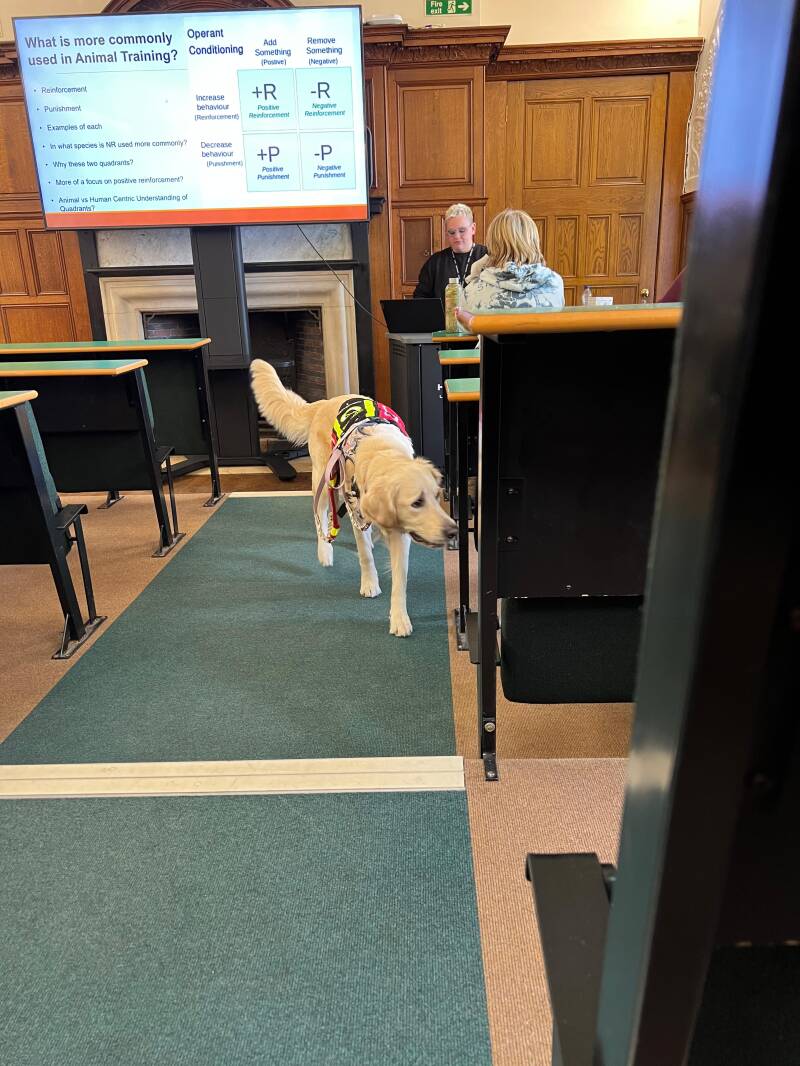

I have nothing but admiration for the work of Ruby and the Infinity Dogs team. I am a Certified Animal Behaviourist with a large educational platform that seeks to promote the very latest in the understanding of the physical and emotional experience of dogs and the humans who care for them. With a human psychology background, I put a focus on the emotional and social safety of both human and dog.
So this is why I am so supportive of what Infinity Dogs are doing in their mission to ensure both ends of the lead are supported with regard to physical, emotional and social safety. Emotional wellbeing really does matter, and it is better to find ways that caters for both the humans and the dog’s needs, whilst ensuring the very best supportive relationship can be created. This lies at the heart of what Ruby and the team seek to do. I have had the privilege of spending time with Ruby on my platforms, and in person at various events, and I am fully supportive of her mission.
It is my belief they are providing a gold standard approach to Assistance Dog training, support and advocacy, which I can only hope can be adopted more widely within a sector that is still widely unregulated.
Andrew Hale

If you have not already read through our eligibility criteria, or have questions about accessing our training, please read the section on



